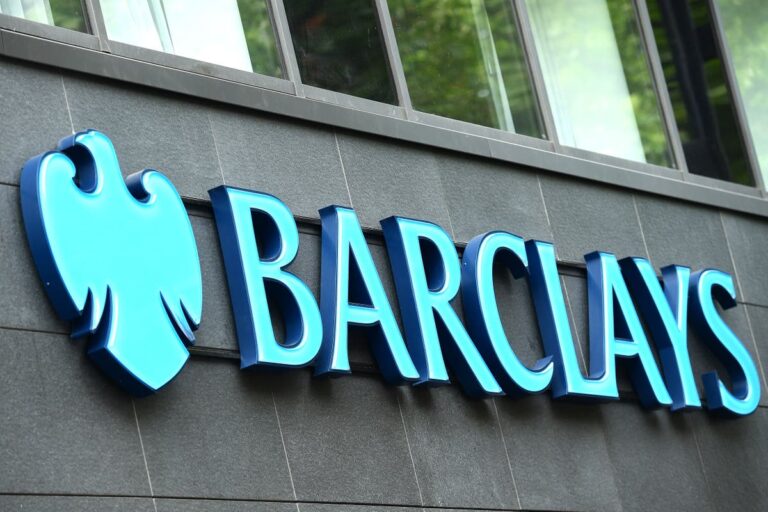Campaigners are calling on Barclays to close a “loophole” in its energy policy that allows it to finance fracking companies.
Britain's biggest bank revised its climate change statement in February, pledging to focus money on helping energy companies decarbonise.
The bank said it would no longer finance new oil and gas projects and would limit lending to “pure” companies focused solely on fossil fuel extraction and exploration.
Barclays' energy policy has loopholes that allow the bank to continue financially supporting hydraulic fracturing, a dangerous activity that contributes to climate change and has the potential to destroy habitats and contaminate water supplies. It is included
Kelly Shields, Share Action
However, ShareAction, which calls for responsible investment, pointed out that purely industrial companies working on short-term mining projects are exempt from this obligation.
The charity added that hydraulic fracturing activities – the controversial process of extracting oil and gas by creating large cracks in underground rock – are usually short-lived.
To explore the potential impact of continued lending to fracking companies, ShareAction examined Barclays' recent energy lending history.
Loans to pure-play companies fell 42% from an average of $1.9 billion in 2016-2020 to $1.1 billion in 2021-2022, the latest year for which figures are available.
However, ShareAction also revealed that, on average, companies specializing in hydraulic fracturing accounted for the lion's share (57%) of Barclays' loans to pure operating companies over this period.
In the most recent year, 2022, hydraulic fracturing companies had an 80% share.
Elsewhere, ShareAction said Barclays had committed to restricting fracking financing in the UK and Europe, where most fracking deals have been banned or suspended.
Meanwhile, the bank's fracking customer base is primarily concentrated in the United States.
The charity said many of Barclays' peers, including HSBC and BNP Paribas, have placed limits on fracking financing in North America as well as the UK and Europe.
Barclays believes that funding for hydraulic fracturing will not lock in emissions long-term, as most projects have short-term lifecycles, and will support existing energy assets while clean energy expands. They argue that broader investment is needed.
The bank's energy policy update comes after a period of engagement with a coalition of investors, including ShareAction.
Charities and other campaign groups welcomed the move and withdrew a resolution calling for shareholders to vote on the changes at the bank's annual general meeting in May.
We will finance current energy needs while also funding future expansion of clean energy systems to ensure energy is safe, affordable and reliable. I am working hard on this.
Barclays spokesperson
However, it also said the changes were not sufficient to materially impact the bank's fossil fuel lending.
Kelly Shields, ShareAction's campaign manager, said: “Barclays' energy policy requires banks to financially support hydraulic fracturing, a dangerous activity that contributes to climate change, destroys habitats and contaminates water supplies. It contains loopholes that allow us to continue to provide support.”
“Barclays' stance on fracking is out of step with other major banks, which have listened to the concerns of their investors and customers and have begun taking steps to end support for this fossil fuel.
“We call on Barclays shareholders to close these loopholes and eliminate lending to all pure oil and gas companies, including fracking operators, anywhere in the world.”
Katharina Lindmeyer, senior responsible investment manager at Nest, said: “Barclays clearly believes it can and should do more to tackle climate change, particularly in strengthening its fracking policy.
“We will continue to work with Barclays over the coming years to support policy development around hydraulic fracturing in key areas of focus.”
A Barclays spokesperson said: “With our goal of delivering $1 trillion in sustainable transition finance by 2030, Barclays is committed to focusing on and engaging with diverse energy companies making low carbon investments. “We continue to support the energy sector in its transition, with increased scrutiny of energy companies.” In the development of new oil and gas projects.
“We will finance the expansion of future clean energy systems while also financing current energy needs to ensure energy is safe, affordable and reliable. I am working hard on this.
“Barclays’ absolute emissions from energy financing have been reduced by 44% since 2020, exceeding our 2030 target.”



